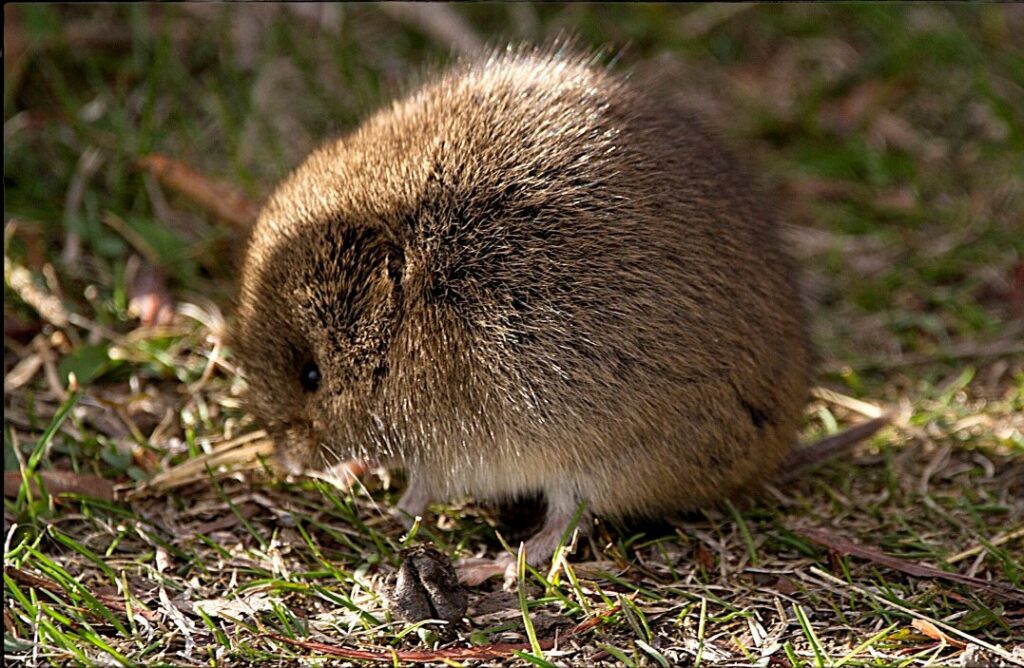 Do Voles Infest Houses Or Just Lawns?
Do Voles Infest Houses Or Just Lawns?
Voles are small mammals that look cute and harmless, but they are also known for causing damage due to their tendency to dig. They are often confused with either moles or mice, but they are neither of them. The meadow vole, also known as the meadow mouse, is a rodent closely related to a mouse but not quite the same.
These small animals are not aggressive but lead a very active life and are known for their great digging abilities. Although they do not infest houses often or on purpose, they can sometimes be found indoors. One or two of them may find their way into your house by accident.
Voles are not the kind of animals that sleep when it is dark, and therefore, they can be active whether it is day and at night. Being active all year round and their ability to dig makes voles very destructive whenever they invade your outdoor property. These rodents can do a lot of damage to your lawn and garden when they dig tunnels in the soil.
They enjoy eating plants and gnawing stems of plants, and they also like feasting on grass blades. That is why they can be very destructive to grass as well as crops. When voles come to your property, you will notice some previously healthy plants are damaged or dead because the voles have feasted on the roots.
Why Do Voles Go Into Houses And How Do They Get Inside?
Typically, voles are not indoor pests and are not interested in getting into your home. They spend most of their time outdoors, even when they end up in your home. Their greatest interest is the plants in your yard as they feed on them.
Voles are not very afraid of snow but may want to seek shelter by burrowing through it to get to a warmer place. During winter, the voles may let the snow cover them and protect them from their predators.
But sometimes they may want to seek some heat and thus dig a tunnel in the lawn searching for a warm space. These tunnels may lead them into the house without knowing, depending on where they begin their burrowing. For example, they may start digging from underneath your patio and find themselves ending into the warm space of your house. Their main intention may not be to get into your house, but the tunnels may lead to the house.
Voles are very skilled at digging, and if they infest your yard, you will immediately know when you find some holes that look like a series of raised tunnels on the surface of your lawn. The voles make these underground tunnels as they dig in the turf. They also wear down the grass with their feces as they move along their runways that they have created in the lawn.
These animals are poor climbers and do not like to infest buildings, but they sometimes find themselves in the house without planning. The digging behavior of voles leads them to make burrows, especially when they feel that it has become colder outside. But all they want is to get into a warmer place, not realizing that sometimes the tunnels may lead into a house.
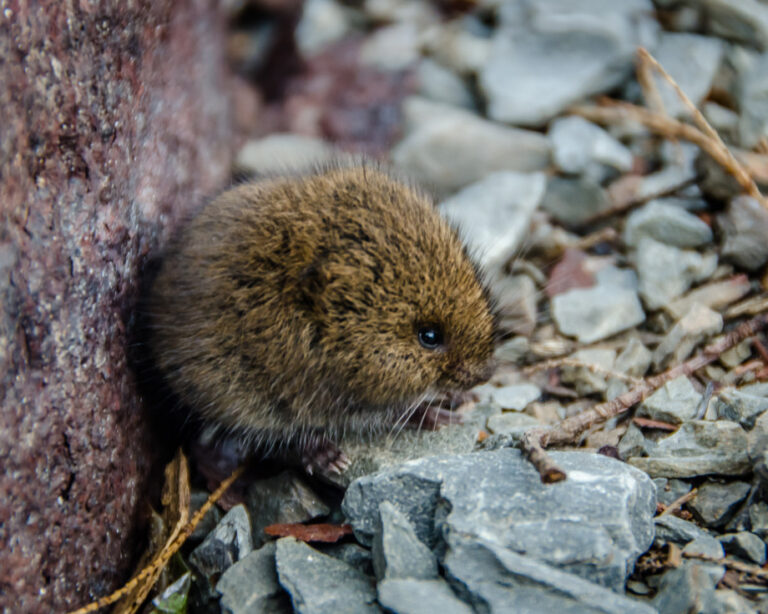
Can Voles Damage Houses And What Damage Can They Do To Your Property?
When voles get into your outdoor property, most of which they will do as they seek watered lawns during the dry season, they can damage your lawn and trees in your yard.
These small animals like running around in the tunnels they create in your landscape. They will do that by feeding on your lawn and any garden plants in your yard. You will notice extensive vole damage around your home’s foundation plantings. The animals can also gnaw through all the way around the base of young trees and other woody vegetation.
This can be very frustrating because they like concentrating more on the roots of the plants and this is what causes most of the plants to die. In addition, voles live in colonies, and as the colonies keep growing, they eventually increase the number of tunnels and spread them all over the lawn.
However, that does not mean that you should let them stay in your house if they happen to get inside, just because they don’t do much with your property. When they get into your house, they might bring parasites like ticks, mites, and fleas that are harmful to you and your pets. Also, their feces and urine are not safe and can spread some serious diseases. Therefore, as much as voles may not bite you, you should not tolerate them and live with them in the house.
Voles are known to dig through the fence into your garden. To protect your vegetation from a vole infestation, you can install a special vole-proof, woven wire or hardware cloth fence around small gardens and flower beds to keep those rodents away.
You can also use vole repellant products to spray in your yard, but your best bet is to call professional exterminators once you find these animals have entered before using any home remedies.
Our vole removal experts at Westchester Wildlife know best how to deal with the rodents and how to eliminate them from your property. So protect your home, call us today for more information and to make an appointment.
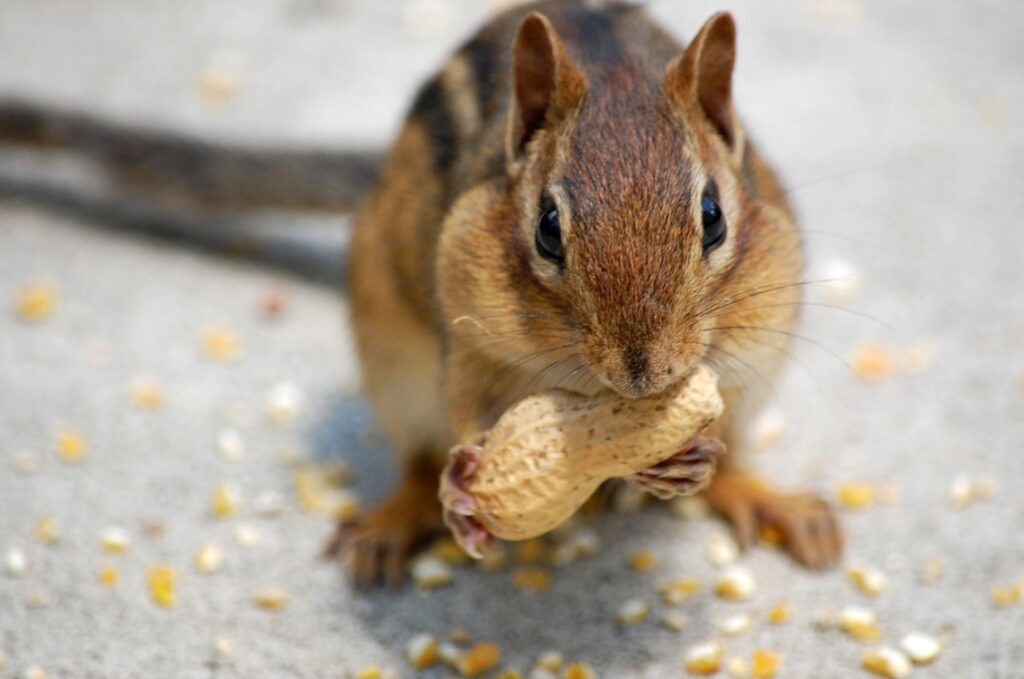 Are Chipmunks Smarter Than Squirrels?
Are Chipmunks Smarter Than Squirrels?
Animals tend to have intelligent capabilities that are far advanced beyond what we think about them. Animals have improved their habits based on the influence of the environment, and most of the things they do indicate that they are bright and intelligent.
When we compare a chipmunk and a squirrel, we find the chipmunk to be smarter than a squirrel. This might come as a surprise, but it is a fact observed from their nature. Both animals are smart and intelligent, but the chipmunk is a bit smarter than the squirrel. Let us break it down.
How Intelligent Is A Chipmunk And A Squirrel?
Chipmunks are known to make homes for themselves by creating complex tunnel systems in their burrows. They can create a system up to 30 feet long, which is evidence of their great IQ. They can also make nests in bushes and logs and only interact during the mating season. They also have a complicated communication system that uses various calls, which all have different meanings.
Squirrels are always obsessed with nuts. They can always be seen burying them and seem always to remember precisely where they had buried their stash. Instead of storing all their nuts in one place to prepare for the winter, the squirrels are scatter-hoarders and will keep nuts in several places.
This shows that they are organized creatures that are always meticulous about how they store their food. They also have a strong sense of smell which helps them find food.
However, in terms of IQ, the chipmunks exceed the squirrels since they have been known to create more complex systems for their habitat.
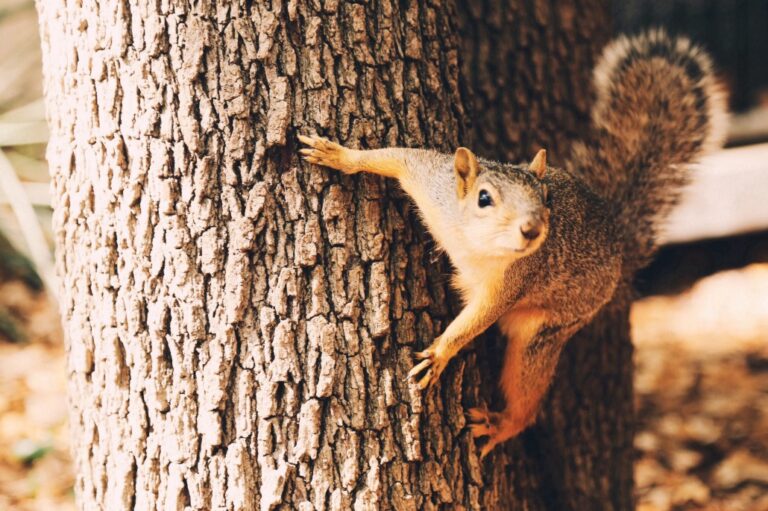
How Do Chipmunks And Squirrels Communicate?
Chipmunks have vocal communication, which is primarily made up of a series of high-pitched “chip” noises that are similar to the chirping of birds. The repeated sounds can last for up to 30 minutes and make claims on their territories. If these calls are challenged, it can sometimes lead to aggression. The vocalizations are also quite complex and are all used to pass different information to the other chipmunks within hearing distance.
To respond to a danger on the ground, such as when a chipmunk is being chased by a predator, it will use deep clucking sounds or trills that are much shorter than chips. They are a warning to other chipmunks to be more alert and vigilant.
In addition, body language is used when one chipmunk comes across other chipmunks. These are visual cues implying their intention and can be accompanied by chemical communication through smells.
Squirrels make use of a vast number of complex signals to communicate with each other. These include complex vocalizations, scent, and visual cues. Vocalizations can be categorized into warnings, mating, nesting, and aggressive calls. A male pursuing a female squirrel will use a series of calls similar to sneezes to get her attention. A frightened squirrel will let out a small shrill scream.
Squirrels also use the tail for communication, and it can be shaken or waved depending on the message. Moreover, body language is used by the squirrels to convey their emotional state. Scents are also part of their communication, and they use them to mark their territory.
Can Chipmunks And Squirrels Understand, Remember, Or Recognize Humans?
Squirrels have, over time, adapted to living with people and have been proven to have an excellent memory. They can remember humans and can recognize the people that can be trusted as a source of food. Their memory is evident in studies where they were able to navigate a maze.
Chipmunks are not social and friendly. They would not even make a good pet and always try to stay hidden. Only chipmunks raised from an early age will be accustomed to human contact, and they can learn to play and tolerate petting.
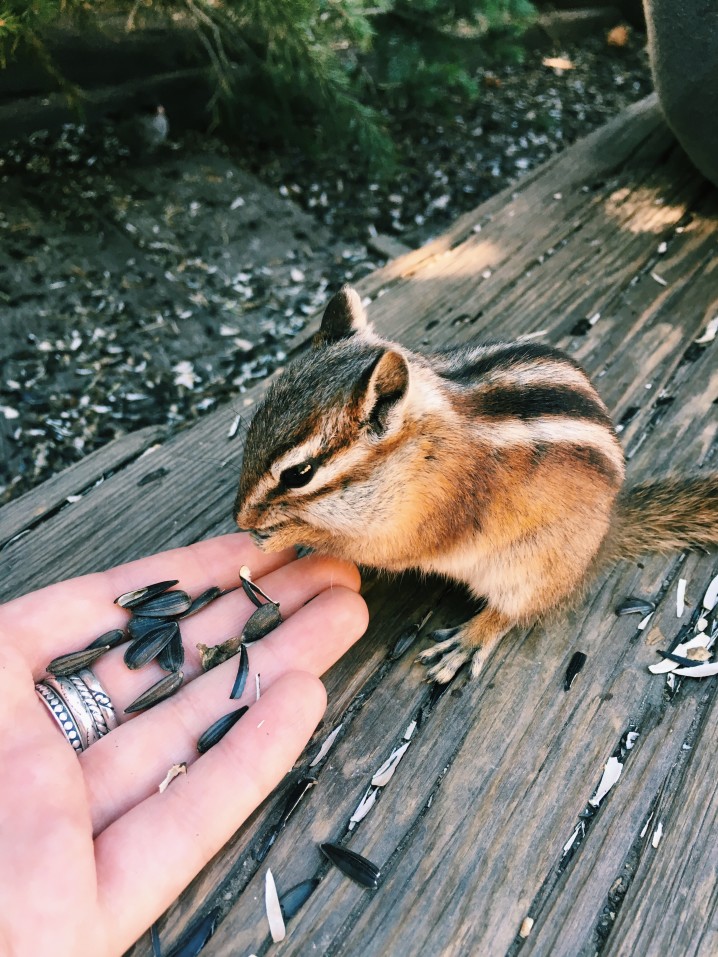
Do Chipmunks And Squirrels Bite?
By nature, squirrels are not known to be aggressive, they are usually frightened of humans and will not attack them. Their natural defense is to bite whenever they feel threatened, but they will not bite their owners hard. The biting habit is a natural trait of the squirrels, and they cannot stop it. A pet squirrel will only bite playfully, and it will not hurt you.
Chipmunks are harmless unless they are feeling threatened. In such a scenario, the chipmunk will bite you hard and run off as fast as it can. When stressed, chipmunks become a lot more aggressive, and in this case, they will scratch or bite you.
When you see a distressed chipmunk, be sure to keep your hands away from it as it has very sharp teeth, and the bite will hurt. If it bites deeply, you might even start to bleed, and you must be treated immediately to avoid the risk of infection or even a septic reaction.
Treating the wound as soon as possible is the recommended course of action when a chipmunk has bitten you. Although they do not carry rabies, chipmunks can transmit other diseases such as Lyme disease, plague, and La Crosse encephalitis.
Our Westchester Wildlife technicians are highly trained and experienced in eliminating squirrels and chipmunks from your property. If you’re seeking squirrel or chipmunk control services in Westchester, Dutchess, Putnam Counties, NY, and Fairfield County, CT, contact us today to schedule a free phone consultation or an appointment with our qualified team of pest and wildlife exterminators.
